
- About Michelle Waters
- Curriculum Vitae
- Tools I Use
- Podcast Episodes
- How To Be Our Podcast Guest
- Member Login
- Member Helpdesk
- Support Portal
- Resource Partners
- Writing Partners
- Certificate Verification
- How To Contribute
by Michelle Boyd Waters, M.Ed.

28 Expository Writing Prompts for Middle School
October 12, 2014 in Pedagogy

The ability to provide information in different contexts is essential to effective communication. Students must practice expository writing throughout their academic careers. The sooner they start, the better. Below are some descriptive, sequential, compare and contrast, cause and effect, and problem/solution writing prompts to help you give your students the practice they need.
Descriptive
- Write an essay describing your school to a potentially new student.
- Write an essay describing the appeal of reality TV shows.
- Write an essay describing a rainy night.
- Write an essay describing your first pet.
- Write an essay describing your first memory.
- It’s Christmas morning and there is a package under the tree containing exactly what you requested. Describe the contents of your package..
- Write an essay describing how you feel when you wake up and discover snow on the ground outside — and school has been cancelled.
- Writing an essay explaining the process you use to style your hair in the morning.
- You have invited your two best friends to spend the afternoon at your home. Write an essay telling how your prepare for their visit.
- Everyone has lost something at one time or another. Write an essay telling what you did to find what you had lost.
- Describe how to make a peanut butter and jelly sandwich.
- Tell how you wash your hair.
- Describe the plot of your favorite book.
Compare and Contrast
- Write an essay comparing and contrasting ownership of cats and dogs.
- Compare and contrast this year in school to last year.
- Compare and contrast your two favorite characters.
- Compare and contrast your family’s home and the home of your dreams.
- Compare and contrast a typical day in your life today and what you think a typical day in your life will be like when you are 25.
- Compare and contrast your two favorite teachers.
Cause and Effect
- Write an essay telling how peer pressure has affected you this year.
- Write an essay explaining what causes students to drop out of high school.
- Discuss the causes and effects of bullying in schools.
- Discuss the causes and effects of poverty in rural (urban) areas.
- Discuss the causes and effects of drug or alcohol use on families.
Problem/Solution
- Most students do not read or watch news, resulting in a lack of knowledge about the world outside of their immediate neighborhood. Write an essay describing why this is a problem and telling how this problem might be solved.
- Think about the community in which you live. What could you do to make it a better place? Choose one problem that needs to be solved to make your community a better place to live. Write a letter to the editor describing how solving this problem would make your community a better place, and tell what you would do. Give reasons why you think your plan would work.
- Think about what you could do to make your school more beautiful. Think about how you would do this. How could you persuade the people in your school that your idea is a good one? Write a letter to the principal of your school asking for support for your plan for making your school more beautiful. Tell what you would do and how you would do it. Explain why you think your plan is important and why it would work.
- Think about animal abuse. Some people abuse animals by being intentionally cruel to them or neglecting their basic needs; others abuse animals out of ignorance. Think about what could be done to prevent both kinds of animal abuse. Write a letter to leaders in your community describing how you would solve this problem, and how treating animals better would improve the lives of animals and people. Explain why you think your plan will work.
Related topics: Informative Writing , Quickwriting
About the author
Michelle Boyd Waters, M.Ed.
I am a secondary English Language Arts teacher, a University of Oklahoma student working on my doctorate in Instructional Leadership and Academic Curriculum with an concentration in English Education and co-Editor of the Oklahoma English Journal. I am constantly seeking ways to amplify students' voices and choices.
- Pingback: Writing in the Middle School-Thoughts and Ideas | Teachers Pondering
the prompt should be harder,and including a think about and quote.
Thank you very much for your input, Amelia!
this info is very helpful and all but right now at school (i am in middle school) i have to write an expisitory essay on any topic i am really having trouble finding a topic but it has to be something u can argue like for example: football: people think it is a dangerous sport but the rules have changed more saftey… yeah stuff like that something u can argue ur opinion and so far i have nothing i was really hoping this would help but no but thx anyways i am gonna go to another website but in the future this could really help thx!!!!
But it makes your teacher happy to know what your input is for example what your input is about bullying and drugs.
Thank you so much for this. I need to give my 8th-grader, reluctant writer, some options for what he writes as practice on spring break. This is a great list. I added one about describing the appeal of the YouTube videos he watches, and another about the cause-and-effect of DOnald Trump’s candidacy, since my son is very interested in Trump.
Thank you this helped a lot when I didn’t know what to write for my essay.
I really like this website because i like writing essays for practice and these are a little difficult but It is good for it to be a little diffcult because it is more challenging.
These are great! I will be using these suggestions with my 6th graders! I love expository writing!!!! 🙂
Comments are closed.

- Online Calculus Tutors
- Online Geometry Tutors
- Online Algebra Tutors
- Online Trigonometry Tutors
- Online Statistics Tutors
- Online Chemistry Tutors
- Online Macroeconomics Tutors
- Online English Tutors
- Online Physics Tutors
- Online Computer Science Tutors
- Online Accounting Tutors
- Online Biology Tutors
- Online Business Studies Tutors
- Online Finance Tutors
- Online Programming Tutors
- Online Management Tutors
- Online Science Tutors
- Year 2 Maths
- Year 3 Maths
- Year 4 Maths
- Year 5 Maths
- Year 6 Maths
- Year 2 English
- Year 3 English
- Year 4 English
- Year 5 English
- Year 6 English
- Year 7 Maths
- Year 8 Maths
- Year 9 Maths
- Year 10 Maths
- Year 10 Advance Maths
- Year 7 English
- Year 8 English
- Year 9 English
- Year 10 English
- Year 11 General Maths
- Year 11 Chemistry SA,NT
- Year 11 General Mathematics VIC
- Year 11 Mathematical Methods
- Year 11 Mathematics Standard
- Year 11 Chemistry ACT
- Year 11 Mathematics Extension 1
- Year 11 Mathematical Methods SA, NT
- Year 11 Mathematical Methods VIC
- Year 11 Mathematical Applications
- Year 11 Chemistry QLD
- Year 11 Literature ATAR
- Year 11 English - QLD
- Year 11 English Advanced NSW
- Year 11 EALD Level 3
- Year 11 English Language
- Year 11 Essential English M
- Year 11 Essential Skills TAS
- Year 11 Essential English
- Year 11 Bridging EAL
- Year 11 EALD Level 1
- Year 11 Stage 1 Essential English
- Year 11 English General
- Year 11 Mathematics Advanced
- Year 11 EAL
- Year 11 English Standard
- Year 11 EALD ATAR
- Year 12 Mathematics Standard
- Year 12 Further Mathematics
- Year 12 Mathematics Applications
- Year 12 Mathematics Extension 1
- Year 12 Mathematics Methods
- Year 12 Mathematics Advanced
- Year 12 Mathematics Methods VIC
- Year 12 Mathematics Methods - TAS
- Year 12 General Mathematics TAS
- Year 11 English T
- Year 12 Mathematical Methods - QLD
- Year 12 General Mathematics SA, NT
- Year 11 Foundation English
- Year 11 English Studies
- Year 11 Literacy Short Course
- Year 11 English Preliminary
- Year 12 English ATAR
- Year 11 EAL/D
- Year 12 English Extension 2
- Year 12 EAL/D
- Year 12 EALD ATAR WA
- Year 12 English Foundation
- Year 12 English Extension 1
- Year 12 Literature
- Year 12 Stage 2 Essential English
- Year 12 English Literature ATAR
- Year 12 Stage 2 English
- Year 12 EALD Level 2 - TAS
- Year 12 English Advanced NSW
- Year 12 Chemistry VIC
- Year 12 English Language
- Year 12 English Literature T - ACT
- Year 12 English Foundation WA
- Year 12 English Standard NSW Learning Programs
- Year 11 Chemistry WA
- Year 11 Chemistry - VIC
- Year 12 Chemistry - QLD
- Year 12 Chemistry - TAS
- Year 12 Chemistry - WA
- Year 12 Chemistry - NSW
- Year 12 Chemistry - ACT
- Online Tutors in Sydney
- Online Tutors in Melbourne
- Online Tutors in Brisbane
- Online Tutors in Gold Coast
- Online Tutors in Perth
- Online Tutors in Canberra
- Online Tutors in Adelaide
- Online Tutors in Newcastle
- HSC Papers 2019
- HSC Papers 2018
- HSC Papers 2017
25 Expository essay topics for Middle School by Category

Expository Essays explain a particular topic in a detailed, logical and straightforward manner. These types of essays are completely informative. They do not include any references or any opinion of the writer. The tone of an expository essay is kept neutral. Hence, while writing an expository essay you will be expected to illustrate, define, explain or clarify the topic in a way that the readers can easily understand it completely. You may provide arguments, conduct an investigation or evaluate things in order to provide a clear explanation to your readers.
Essay writing is an art. It is an essential skill to have which is why you’re going to require essay topics for Grade 7 , 8, 9, and 10. You may have to do a lot of creative writing in middle school . Writing is a must-have school and these activities in school prepare you for it.
Types of Expository Essays
- Descriptive Essay – describes a place, thing or an experience
- Problem-Solution Essay – presents a problem and its solution
- Cause-Effect Essay – finds the cause of something and its impact
- Comparison Essay – compares and contrasts two things
- Process Essay – explains a process
How to Choose a Topic for your Expository Essay?
The most difficult and important aspect of essay writing is choosing the ‘right topic’. Many times students choose a difficult topic for which they need to conduct a lot of research which however makes essay writing difficult. Here are 4 quick tips on picking up the right topic –
- Understand the purpose of writing the essay
- Brainstorm some ideas and hence make an informed choice
- Always conduct background research on the topic that you choose to understand its scope
- Start with an outline first! Do not start writing straight away.
Expository Essay Samples
To help you get a better idea of what an expository essay is, consider the samples given below –
Topic: How Students can spend Their Leisure Time
Students have got a lot to handle! From attending classes to completing assignments, and participating in extracurricular activities, the small amount of leisure time that remains for them should be utilized in the best way possible. Students must choose their activities wisely as the way they spend their leisure time can reflect upon their physical and mental well-being.
Sports and Exercises
With most activities being sedentary nowadays, students should find some time to indulge in any kind of sports activity or a workout routine of their choice. Studies have shown that continuous sitting can lead to adverse effects on the health of students. Hence exercise and sports are good choices for students.
Developing Hobbies
Gardening, reading, writing, drawing, painting, or even cooking, there are numerous hobbies to choose from. Students should find some time for pursuing their hobbies, exploring new ones and enhancing their skills as a part of their leisure activity. No one knows when your hobby becomes your passion and hence gives a pathway to your success!
Time to Relax!
It is essential for us to learn to quiet our minds in this busy world. Hence students should develop a habit to relax and practice mindfulness every day. They can pick up any activity for this like meditation, yoga, listening to music, or even sitting with their family and friends. It is crucial for students to stay calm and find time, particularly for them for their mental and spiritual well-being.
These activities can help students take control of their lives. Picking up an activity that does not involve intellect, that is unlike school activities, can help students find a balance in their life. They can relax, play, grow and discover their true potential only through proper utilization of their leisure time.
Expository Essay Topics
Got a gist of how to write an expository essay? Let us have a look at some easy yet interesting expository essays that you can use –
Descriptive Essay
1. Describe your School 2. Describe your Pet 3. How Diversity can affect a Classroom? 4. Why do we Celebrate Christmas? 5. When you saw Snow for the first time
Problem-Solution Essay
1. Many students do not watch the news. How can this be a matter of concern for them? Are there any solutions to this issue? 2. Animal Abuse and Its Solutions 3. Global Warming and Its Solutions 4. What is Deforestation? Why is it a serious issue? How can this issue be solved? 5. How can we make our Community a Better Place?
Cause-Effect Essay
1. How air Pollution is affecting our Health? 2. Bullying in Schools – Causes and Effects 3. Peer Pressure and its Effects 4. Effects of Using Social Media 5. How Poverty affects urban and rural areas
Comparison Essay
1. Compare your two favourite sportspersons 2. Compare your current house to your dream home 3. Compare your two favourite TV shows 4. Watches – then and now! 5. Compare a place you visited recently with your city
Process Essay
1. How to Make Friends 2. How to Study 3. How to Take Care of your Dog 4. How to Fix a Table Fan 5. How to Write a Diary Entry
Got some inspiration to start with your own essay? So why delay? Start wiring your essay today itself. We hope that these topics would have given you a fair idea of what topic you can choose for your expository essay. Happy Writing!
If you need help in writing essays or in the preparation for NAPLAN , you can find online English tutors and online Math tutors on CrunchGrade .
Don’t be shy! you don’t have to make a decision right away. The first 30 Minutes are absolutely FREE!
Book a Session Now!
- homeworkhelp
- Student life
Book a Free Demo
Math Calculus Geometry Algebra Trigonometry Statistics Chemistry Economics Macroeconomics English Physics Computer Science Accounting Biology Business Studies Finance Programming Management Science Year 3 Year 4 Year 5 Year 6 Year 7 Year 8 Year 9 Year 10 Year 11 Year 12 College
Search Here
Recent posts.
- General Achievement Test Australia
- ESL vs English Tutoring – What Makes Them Different?
- Know the Grading System in Australia
- GED vs HiSET: All You Need To Know
- HSPT vs PSAT: Which One Is Beneficial For You?
- WordPress.org
- Documentation
- Support Forums

How to Write Excellent Expository Essays
WHAT IS AN EXPOSITORY ESSAY?
An Expository essay ‘exposes’ information to the reader to describe or explain a particular topic logically and concisely.
The purpose of expository writing is to educate or inform the reader first and foremost.
Though the term is sometimes used to include persuasive writing , which exposes us to new ways of thinking, a true expository text does not allow the writer’s personal opinion to intrude into the text and should not be confused.
Expository Writing follows a structured format with an introduction, body paragraphs presenting information and examples, and a conclusion summarising key points and reinforcing the thesis. Common expository essays include process, comparison/contrast, cause and effect, and informative essays.
EXPOSITORY ESSAY STRUCTURE
TEXT ORGANIZATION Organize your thoughts before writing.
CLARITY Use clear and concise wording. There is no room for banter.
THESIS STATEMENT State position in direct terms.
TOPIC SENTENCE Open each paragraph with a topic sentence.
SUPPORTING DETAIL Support the topic sentence with further explanation and evidence.
LINK End each body paragraph by linking to the next.
EXPOSITORY ESSAY TYPES
PROCESS Tell your audience how to achieve something, such as how to bake a cake.
CAUSE & EFFECT Explore relationships between subjects, such as climate change and its impact.
PROBLEM & SOLUTION Explain how to solve a problem, such as improving physical fitness.
COMPARE & CONTRAST Compare and contrast two or more items, such as life in China life vs life in the United States or Australia.
DEFINITION Provides a detailed definition of a word or phrase, such as self-confidence.
CLASSIFICATION Organizes things into categories or groups, such as types of music.
STRUCTURE & FEATURES OF EXPOSITORY WRITING
While there are many types of expository essays, the basic underlying structure is the same. The Hamburger or 5-Paragraph Essay structure is an excellent scaffold for students to build their articles. Let’s explore the expository essay outline.
INTRODUCTION:
This is the top bun of the burger, and here the student introduces the exposition topic. This usually consists of a general statement on the subject, providing an essay overview. It may also preview each significant section, indicating what aspects of the subject will be covered in the text. These sections will likely relate to the headings and subheadings identified at the planning stage.
If the introduction is the top bun of the burger, then each body paragraph is a beef patty. Self-contained in some regards, each patty forms an integral part of the whole.
EXPOSITORY PARAGRAPHS
Each body paragraph deals with one idea or piece of information. More complex topics may be grouped under a common heading, and the number of paragraphs will depend on the complexity of the topic. For example, an expository text on wolves may include a series of paragraphs under headings such as habitat, breeding habits, what they eat, etc.
Each paragraph should open with a topic sentence indicating to the reader what the paragraph is about. The following sentences should further illuminate this main idea through discussion and/or explanation. Encourage students to use evidence and examples here, whether statistical or anecdotal. Remind students to keep things factual – this is not an editorial piece for a newspaper!
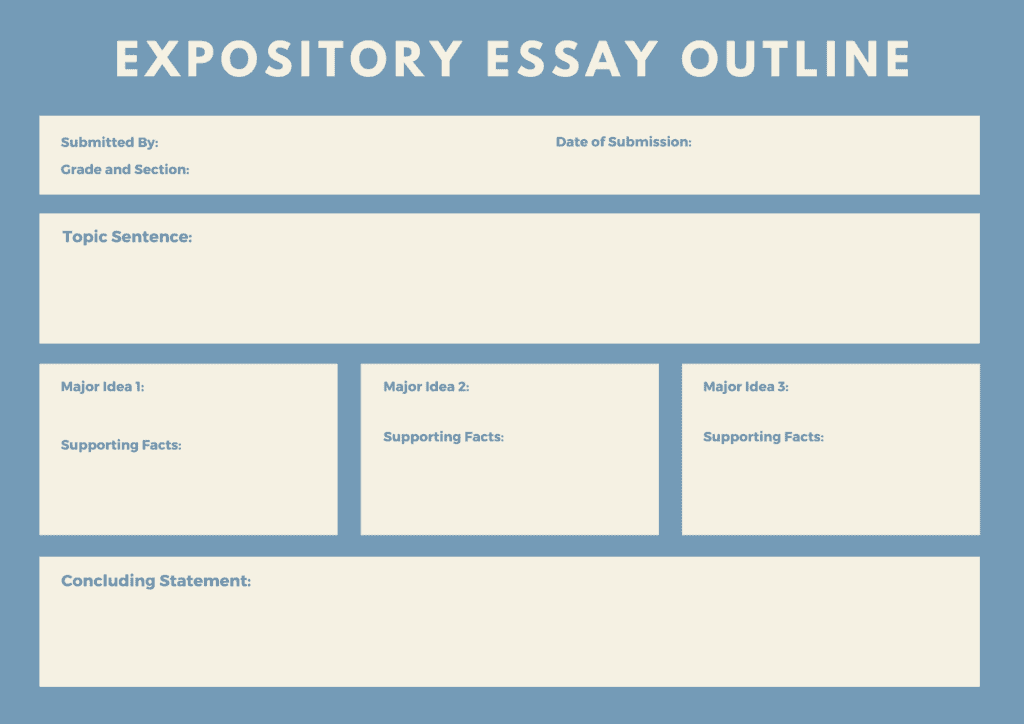
Expository writing is usually not the place for flowery flourishes of figurative imagery! Students should be encouraged to select a straightforward language that is easy for the reader to understand. After all, the aim here is to inform and explain, and this is best achieved with explicit language.
As we’ve seen, several variations of the expository essay exist, but the following are the most common features students must include.
The title should be functional. It should instantly inform the reader what they will learn about in the text. This is not the place for opaque poetry!
A table of contents in long essays will help the reader locate helpful information quickly. Usually, the page numbers found here will be linked to headings and subheadings to be found in the text.
HEADINGS / SUBHEADINGS:
These assist the reader in finding information by summarizing the content in their wording.
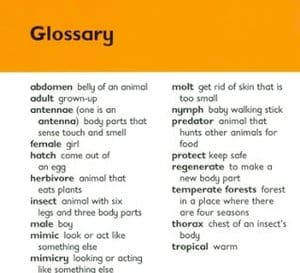
Usually listed alphabetically, the glossary defines unusual or topic-specific vocabulary and is sometimes accompanied by pictures, illustrations etc.
The index lets the reader identify where to find specific information in longer texts. An index is much more detailed than a table of contents.
VISUAL FORMS OF INFORMATION
Expository essays sometimes support the text with visuals, such as:
- Pictures / Illustrations / Photographs:
These can be used to present a central idea or concept within the text and are often accompanied by a caption explaining what the image shows. Photographs can offer a broad overview or a close-up of essential details.

Diagrams are a great way to convey complex information quickly. They should be labelled clearly to ensure the reader knows what they are looking at.
- Charts and Graphs:
These are extremely useful for showing data and statistics in an easy-to-read manner. They should be labelled clearly and correspond to the information in the nearby text.
Maps may be used to explain where something is or was located.
THE ULTIMATE NONFICTION WRITING TEACHING RESOURCE

- 270 pages of the most effective teaching strategies
- 50+ digital tools ready right out of the box
- 75 editable resources for student differentiation
- Loads of tricks and tips to add to your teaching tool bag
- All explanations are reinforced with concrete examples.
- Links to high-quality video tutorials
- Clear objectives easy to match to the demands of your curriculum
Types of expository essay
There are many different types of expository texts (e.g. encyclopaedias, travel guides, information reports , etc.), but there are also various expository essays, with the most common being.
- Process Essays
- Cause and Effect Essays
- Problem and Solution Essays
- Compare and Contrast Essays
- Definition Essays
- Classification Essays
We will examine each of these in greater detail in the remainder of this article, as they have slight nuances and differences that make them unique. The graphic below explains the general structure for all text types from the expository writing family.
THE PROCESS ESSAY
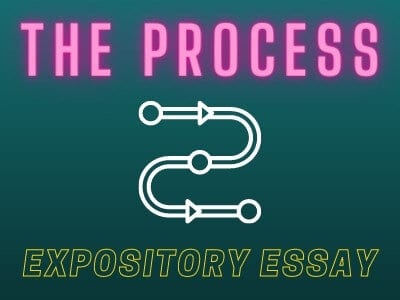
This how-to essay often takes the form of a set of instructions. Also known as a procedural text , the process essay has very specific features that guide the reader on how to do or make something.
To learn more about this type of writing, check out our information-packed article here .
Features of a process essay
Some of the main features of the process essay include:
- ‘How to’ title
- Numbered or bullet points
- Time connectives
- Imperatives (bossy words)
- List of resources
Example Expository Process Essay:
The cause and effect essay.
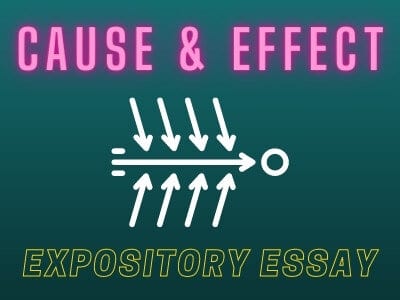
The purpose of a cause-and-effect essay is to explore the causal relationships between things. Essays like this often bring the focus back to a single cause. These essays frequently have a historical focus.
The text should focus on facts rather than assumptions as an expository essay. However, cause-and-effect essays sometimes explore hypothetical situations too.
There are two main ways to structure a cause-and-effect essay.
The Block Structure presents all the causes first. The writer then focuses on the effects of these causes in the second half of the essay.
The Chain Structure presents each cause and then immediately follows with the effects it created.
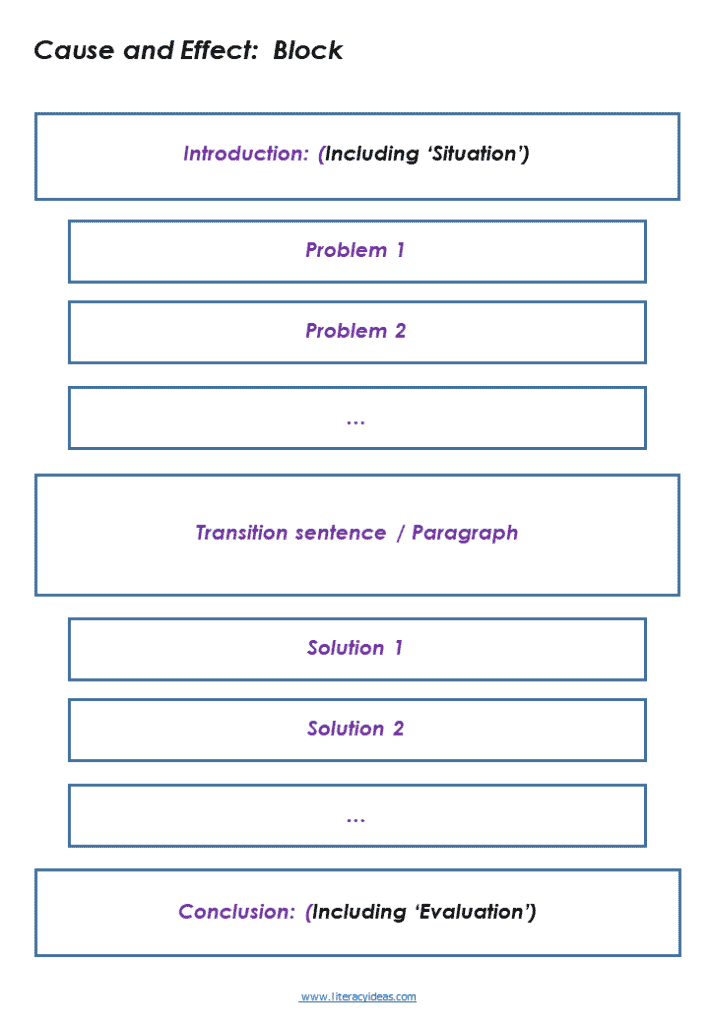
Example Expository Cause and Effect Essay:
The problem and solution essay.
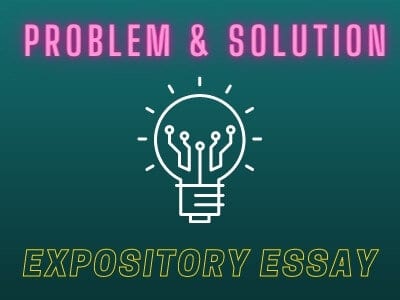
In this type of essay, the writer first identifies a problem and then explores the topic from various angles to ultimately propose a solution. It is similar to the cause-and-effect essay.
While the problem and solution essay can use the block and chain structures as outlined above – substitute cause with problem and effect with a solution – it will also usually work through the following elements:
- Identifies a problem
- Contains a clear thesis statement
- Each paragraph has a topic sentence
- Supports with facts, examples, evidence
- The conclusion summarizes the main points
Suggested Title: What Can Be Done to Prevent Bullying in Schools?
Example Expository Problem and Solution Essay:
The compare and contrast essay.

In this type of essay, students evaluate the similarities and differences between two or more things, ideas, people, etc. Usually, the subjects will belong to the same category.
The compare-and-contrast expository essay can be organized in several different ways. Three of these are outlined below.
In the three structures outlined, it is assumed that two subjects are being compared and contrasted. Of course, the precise number of paragraphs required in the text will depend on the number of points the student wishes to make and the number of subjects being compared and contrasted.
Suggested Title: In-Class or Remote Learning: Which Is Best?

DEFINITION ESSAYS
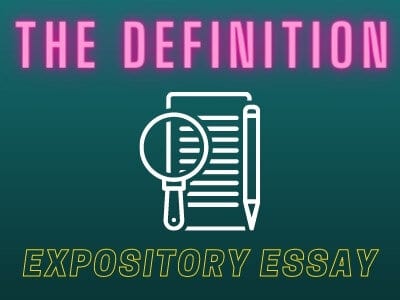
This type of essay provides a detailed description and definition of a word or phrase. It can be a concrete term, such as car or glass, or a more abstract concept, such as love or fear .
A definition essay comprehensively explains a term’s purpose and meaning. It will frequently contain some or all of the following elements:
- A definition of the term
- An analysis of its meaning
- The etymology of the term
- A comparison to related terms
- Examples to illustrate the meaning
- A summary of the main points
Example Expository Definition Essay:
CLASSIFICATION ESSAYS
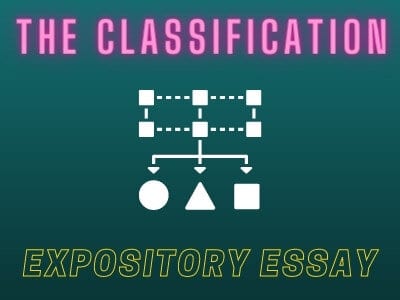
Like definition essays, a classification essay sorts or organizes things into various groups or categories and explains each group or category in detail.
Classification essays focus on:
- Sorting things into functional categories
- Ensuring each category follows a common organizing principle
- Provides examples that illustrate each category.
Example Expository Classification Essay:

One of the best ways to understand the different features of expository essays is to see them in action. The sample essay below is a definition essay but shares many features with other expository essays.

EXPOSITORY WRITING PROMPTS

Examples of Expository Essay Titles
Expository essay prompts are usually pretty easy to spot.
They typically contain keywords that ask the student to explain something, such as “define,” “outline,” “describe,” or, most directly of all, “explain.”
This article will examine the purpose of an expository essay and its structure. It will also examine the primary language and stylistic features of this vital text type.
After this, we’ll explore five distinct tips for helping your students get the most out of writing their expository essays.
Expository Essays vs Argumentative Essays
Expository essays are often confused with their close cousin, the argumentative essay. Still, it’s easy to help students distinguish between the two by quickly examining their similarities and differences.
In an expository essay, students will attempt to write about a thing or a concept neutrally and objectively, unlike an argumentative essay where the writer’s opinions permeate the text throughout. Simple as it sounds, this may take some doing for some students as it requires the writer to refine their personal voice almost out of existence!
Luckily, choosing the correct viewpoint from which to write the essay can go a long way to helping students achieve the desired objectivity. Generally, students should write their expository essays from the third-person perspective.
Contrastingly, argumentative essays are subjective in nature and will usually be written from the first-person perspective as a result.
In an expository essay, the text’s prime focus is the topic rather than the writer’s feelings on that topic. For the writer, disassociating their personal feelings on a topic is much easier when they’re a step removed from the narration by using the third-person POV rather than the first-person POV.
Expository Essay Tips
Follow these top tips from the experts to craft an amazing expository essay.

Tip #1: Choose the Right Tool for the Job

Surprising as it may seem, not all expository essays are created equal.
In fact, there are several different types of expository essays, and our students must learn to recognize each and choose the correct one for their specific needs when producing their own expository essays.
To do this, students will need to know the 5 types of expository essays:
- The Cause and Effect Essay : This type of essay requires that the writer explain why something happened and what occurred due to that event and subsequent events. It explores the relationship between people, ideas, events, or things and other people, ideas, events, or things.
- The Compare and Contrast Essay: In a compare and contrast essay, the writer examines the similarities and differences between two subjects or ideas throughout the body of the piece and usually brings things together in an analysis at the end .
- The Descriptive Essay: This is a very straightforward expository essay with a detailed description or explanation of a topic. The topic may be an event, place, person, object, or experience. This essay’s direct style is balanced with the freedom of the writer can inject some of their creativity into the description.
- The Problem and Solution Essay : In this expository essay, the student will work to find valid solutions to a specific problem or problem.
- The Process Essay : Also called a how-to essay, this essay type is similar to instruction writing, except in essay form. It provides a step-by-step procedure breakdown to teach the reader how to do something.
When choosing a specific topic to write about, students should consider several factors:
● Do they know the topic well enough to explain the ins and outs of the subject to an unfamiliar audience?
● Do they have enough interest in this topic to sustain thorough research and writing about it?
● Is enough relevant information and credible sources available to fuel the student’s writing on this topic?
Tip # 2: Research the Topic Thoroughly
Regardless of which type of expository essay your students are working on, they must approach the research stage of the writing process with diligence and focus. The more thorough they are at the research stage, the smoother the remainder of the writing process will be.
A common problem for students while researching is that sometimes they don’t have a clear understanding of the objective of their research. They lack a clear focus on their efforts.
Research is not mindlessly scanning documents and scrawling occasional notes. As with any part of the writing process, it begins with determining clear objectives.
Often, students will start the research process with a broad focus, and as they continue researching, they will naturally narrow their focus as they learn more about the topic.
Take the time to help students understand that writing isn’t only about expressing what we think; it’s also about discovering what we think.
When researching, students should direct their efforts to the following:

- Gather Supporting Evidence : The research process is not only for uncovering the points to be made within the essay but also the evidence to support those points. The aim here is to provide an objective description or analysis of the topic; therefore, the student will need to gather relevant supporting evidence, such as facts and statistics, to bolster their writing. Usually, each paragraph will open with a topic sentence, and subsequent sentences in the paragraph will focus on providing a factual, statistical, and logical analysis of the paragraph’s main point.
- Cite Sources : It’s an essential academic skill to be able to cite sources accurately. There are several accepted methods of doing this, and you must choose a citation style appropriate to your student’s age, abilities, and context. However, whatever style you choose, students should get used to citing any sources they use in their essays, either in the form of embedded quotations, endnotes, or bibliography – or all three!
- Use Credible Sources: The Internet has profoundly impacted knowledge sharing as the Gutenberg Press did almost 600 years ago. It has provided unparalleled access to the sum total of human knowledge as never before, with each student having a dizzying number of sources available at their fingertips. However, we must ensure our students understand that not all sources are created equal. Encourage students to seek credible sources in their research and filter out the more dubious sources. Some questions students can ask themselves to help determine a source’s credibility include:
● Have I searched thoroughly enough to find the most relevant sources for my topic?
● Has this source been published recently? Is it still relevant?
● Has the source been peer-reviewed? Have other sources confirmed this source?
● What is the publication’s reputation?
● Is the author an expert in their field?
● Is the source fact-based or opinion-based?
Tip #3: Sketch an Outline
Every kid knows you can’t find the pirate treasure without a map, which is true of essay writing. Using their knowledge of the essay’s structure, students start whipping their research notes into shape by creating an outline for their essay.
The 5-paragraph essay or ‘Hamburger’ essay provides a perfect template for this.
Students start by mapping out an appealing introduction built around the main idea of their essay. Then, from their mound of research, they’ll extract their most vital ideas to assign to the various body paragraphs of their text.
Finally, they’ll sketch out their conclusion, summarize their essay’s main points, and, where appropriate, make their final statement on the topic.
Tip #4: Write a Draft
Title chosen? Check! Topic researched? Check! Outline sketched? Check!
Well, then, it’s time for the student to begin writing in earnest by completing the first draft of their essay.
They’ll already have a clear idea of the shape their essay will take from their research and outlining processes, but ensure your students allow themselves some leeway to adapt as the writing process throws up new ideas and problems.
That said, students will find it helpful to refer back to their thesis statement and outline to help ensure they stay on track as they work their way through the writing process towards their conclusions.
As students work through their drafts, encourage them to use transition words and phrases to help them move smoothly through the different sections of their essays.
Sometimes, students work directly from an outline as if on a checklist. This can sometimes be seen as the finished essay resembling Frankenstein. That is an incongruous series of disparate body parts crudely stitched together.
Learning to use transitions effectively will help students create an essay that is all of a whole, with all the joins and seams sanded and smoothed from view.
Tip #5: Edit with a Fresh Pair of Eyes

Once the draft is complete, students enter the final crucial editing stage.
But, not so hasty! Students must pencil in some time to let their drafts ‘rest’. If the editing process occurs immediately after the student finishes writing their draft, they’ll likely overlook much.
Editing is best done when students have time to gain a fresh perspective on their work. Ideally, this means leaving the essay overnight or over a few nights. However, practically, this isn’t always possible. Usually, though, it will be possible for students to put aside their writing for a few hours.
With the perspective that only time gives, when returning to their work, students can identify areas for improvement that they may have missed. Some important areas for students to look at in the editing process include:
- Bias : Students need to remember the purpose of this essay is to present a balanced and objective description of the topic. They need to ensure they haven’t let their own personal bias slip through during the writing process – an all too easy thing to do!
- Clarity : Clarity is as much a function of structure as language. Students must ensure their paragraphs are well organized and express their ideas clearly. Where necessary, some restructuring and rewriting may be required.
- Proofread: With stylistic and structural matters taken care of, it’s now time for the student to shift their focus onto matters of spelling , vocabulary choice, grammar, and punctuation. This final proofread represents the last run-through of the editing process. It’s the students’ final chance to catch mistakes and errors that may bias the assessor (aka You! ) against the effectiveness of the piece of writing. Where the text has been word-processed, the student can enlist inbuilt spelling and grammar checkers to help. Still, they should also take the time to go through each line word by word. Automatic checkers are a helpful tool, but they are a long way from infallible, and the final judgement on a text should employ the writer’s own judgement.
Expository essays are relatively straightforward pieces of writing. By following the guidelines mentioned above and practising them regularly, students can learn to produce well-written expository essays quickly and competently.
Explaining and describing events and processes objectively and clearly is a useful skill that students can add to their repertoire. Although it may seem challenging at first, with practice, it will become natural.
To write a good expository essay, students need a good understanding of its basic features and a firm grasp of the hamburger essay structure. As with any writing genre, prewriting is essential, particularly for expository writing.
Since expository writing is designed primarily to inform the reader, sound research and note-taking are essential for students to produce a well-written text. Developing these critical skills is an excellent opportunity for students through expository writing, which will be helpful to them as they continue their education.
Redrafting and editing are also crucial for producing a well-written expository essay. Students should double-check facts and statistics, and the language should be edited tightly for concision.
And, while grading their efforts, we might even learn a thing or two ourselves!

ARTICLES RELATED TO EXPOSITORY ESSAY WRITING

How to Start an Essay with Strong Hooks and Leads
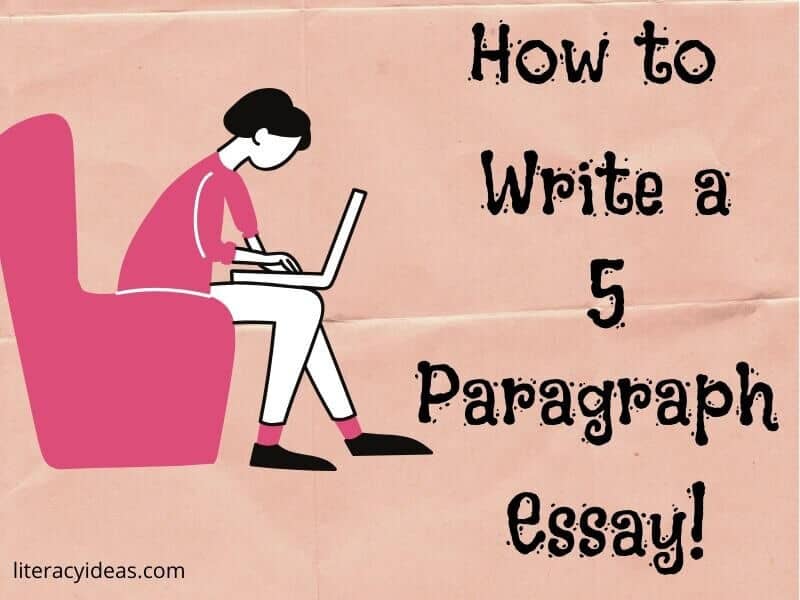
How to write a perfect 5 Paragraph Essay

Top 5 Essay Writing Tips

Top Research strategies for Students
Have a language expert improve your writing
Run a free plagiarism check in 10 minutes, generate accurate citations for free.
- Knowledge Base
- How to write an expository essay
How to Write an Expository Essay | Structure, Tips & Examples
Published on July 14, 2020 by Jack Caulfield . Revised on July 23, 2023.
“Expository” means “intended to explain or describe something.” An expository essay provides a clear, focused explanation of a particular topic, process, or set of ideas. It doesn’t set out to prove a point, just to give a balanced view of its subject matter.
Expository essays are usually short assignments intended to test your composition skills or your understanding of a subject. They tend to involve less research and original arguments than argumentative essays .
Instantly correct all language mistakes in your text
Upload your document to correct all your mistakes in minutes

Table of contents
When should you write an expository essay, how to approach an expository essay, introducing your essay, writing the body paragraphs, concluding your essay, other interesting articles, frequently asked questions about expository essays.
In school and university, you might have to write expository essays as in-class exercises, exam questions, or coursework assignments.
Sometimes it won’t be directly stated that the assignment is an expository essay, but there are certain keywords that imply expository writing is required. Consider the prompts below.
The word “explain” here is the clue: An essay responding to this prompt should provide an explanation of this historical process—not necessarily an original argument about it.
Sometimes you’ll be asked to define a particular term or concept. This means more than just copying down the dictionary definition; you’ll be expected to explore different ideas surrounding the term, as this prompt emphasizes.
Prevent plagiarism. Run a free check.
An expository essay should take an objective approach: It isn’t about your personal opinions or experiences. Instead, your goal is to provide an informative and balanced explanation of your topic. Avoid using the first or second person (“I” or “you”).
The structure of your expository essay will vary according to the scope of your assignment and the demands of your topic. It’s worthwhile to plan out your structure before you start, using an essay outline .
A common structure for a short expository essay consists of five paragraphs: An introduction, three body paragraphs, and a conclusion.
Like all essays, an expository essay begins with an introduction . This serves to hook the reader’s interest, briefly introduce your topic, and provide a thesis statement summarizing what you’re going to say about it.
Hover over different parts of the example below to see how a typical introduction works.
In many ways, the invention of the printing press marked the end of the Middle Ages. The medieval period in Europe is often remembered as a time of intellectual and political stagnation. Prior to the Renaissance, the average person had very limited access to books and was unlikely to be literate. The invention of the printing press in the 15th century allowed for much less restricted circulation of information in Europe, paving the way for the Reformation.
The body of your essay is where you cover your topic in depth. It often consists of three paragraphs, but may be more for a longer essay. This is where you present the details of the process, idea or topic you’re explaining.
It’s important to make sure each paragraph covers its own clearly defined topic, introduced with a topic sentence . Different topics (all related to the overall subject matter of the essay) should be presented in a logical order, with clear transitions between paragraphs.
Hover over different parts of the example paragraph below to see how a body paragraph is constructed.
The invention of the printing press in 1440 changed this situation dramatically. Johannes Gutenberg, who had worked as a goldsmith, used his knowledge of metals in the design of the press. He made his type from an alloy of lead, tin, and antimony, whose durability allowed for the reliable production of high-quality books. This new technology allowed texts to be reproduced and disseminated on a much larger scale than was previously possible. The Gutenberg Bible appeared in the 1450s, and a large number of printing presses sprang up across the continent in the following decades. Gutenberg’s invention rapidly transformed cultural production in Europe; among other things, it would lead to the Protestant Reformation.
Here's why students love Scribbr's proofreading services
Discover proofreading & editing
The conclusion of an expository essay serves to summarize the topic under discussion. It should not present any new information or evidence, but should instead focus on reinforcing the points made so far. Essentially, your conclusion is there to round off the essay in an engaging way.
Hover over different parts of the example below to see how a conclusion works.
The invention of the printing press was important not only in terms of its immediate cultural and economic effects, but also in terms of its major impact on politics and religion across Europe. In the century following the invention of the printing press, the relatively stationary intellectual atmosphere of the Middle Ages gave way to the social upheavals of the Reformation and the Renaissance. A single technological innovation had contributed to the total reshaping of the continent.
If you want to know more about AI tools , college essays , or fallacies make sure to check out some of our other articles with explanations and examples or go directly to our tools!
- Ad hominem fallacy
- Post hoc fallacy
- Appeal to authority fallacy
- False cause fallacy
- Sunk cost fallacy
College essays
- Choosing Essay Topic
- Write a College Essay
- Write a Diversity Essay
- College Essay Format & Structure
- Comparing and Contrasting in an Essay
(AI) Tools
- Grammar Checker
- Paraphrasing Tool
- Text Summarizer
- AI Detector
- Plagiarism Checker
- Citation Generator
An expository essay is a broad form that varies in length according to the scope of the assignment.
Expository essays are often assigned as a writing exercise or as part of an exam, in which case a five-paragraph essay of around 800 words may be appropriate.
You’ll usually be given guidelines regarding length; if you’re not sure, ask.
An expository essay is a common assignment in high-school and university composition classes. It might be assigned as coursework, in class, or as part of an exam.
Sometimes you might not be told explicitly to write an expository essay. Look out for prompts containing keywords like “explain” and “define.” An expository essay is usually the right response to these prompts.
An argumentative essay tends to be a longer essay involving independent research, and aims to make an original argument about a topic. Its thesis statement makes a contentious claim that must be supported in an objective, evidence-based way.
An expository essay also aims to be objective, but it doesn’t have to make an original argument. Rather, it aims to explain something (e.g., a process or idea) in a clear, concise way. Expository essays are often shorter assignments and rely less on research.
Cite this Scribbr article
If you want to cite this source, you can copy and paste the citation or click the “Cite this Scribbr article” button to automatically add the citation to our free Citation Generator.
Caulfield, J. (2023, July 23). How to Write an Expository Essay | Structure, Tips & Examples. Scribbr. Retrieved March 25, 2024, from https://www.scribbr.com/academic-essay/expository-essay/
Is this article helpful?

Jack Caulfield
Other students also liked, academic paragraph structure | step-by-step guide & examples, how to write topic sentences | 4 steps, examples & purpose, how to write an argumentative essay | examples & tips, unlimited academic ai-proofreading.
✔ Document error-free in 5minutes ✔ Unlimited document corrections ✔ Specialized in correcting academic texts

Examples of Expository Essays in Middle School

SAT Essay Score: Does It Affect Your SAT score, How Many Points is it ...
Middle school students write expository essays to demonstrate their knowledge in their core classes. For this essay, they conduct research, formulate an argument related to the topic and support their analysis with evidence. Prompts for these essays range from literary and historical analysis to making comparisons in science or explaining an equation in math.
Language Arts Essay
The expository essay in a language arts classroom often revolves around a literary analysis. For a literary analysis, language arts teachers ask questions related to characterization, conflict, theme or literary elements. For instance, an essay prompt asks whether a character is flat or round. Middle schoolers answer the question in a thesis statement in the introduction, which also includes the specifics of the story. They spend one to three paragraphs supporting their answer with support from the text. In the conclusion they restate their thesis, summarize the evidence and generalize the importance of their topic. This format is fairly consistent across content areas, with some distinctions.
Science Essay
Students usually conduct more research or base their essay on comparisons in the science classroom. For instance, middle schoolers may see the following prompt: "Compare four organelles of a eukaryotic cell to four parts of something organized such as a factory or computer." For this essay, they write a statement of purpose, or sentence declaring their comparison, in the introduction as well as definitions of relevant terms. Since the prompt specifies four organelles, they include four body paragraphs, each drawing comparisons between the organelle and counterpart in the chosen example. The conclusion includes the student's analysis of how similarly the organelles function as related to the comparison.
Social Studies Essay
Social Studies offers many opportunities for expository essays. Teachers testing for enduring understanding may ask the following: "Identify the Compromise of 1850 and analyze how it contributed to the sectional crisis." For this essay, the introduction includes brief background information and the statement of purpose describing the analysis. Middle schoolers then spend a paragraph identifying the Compromise of 1850 in detail and one to two paragraphs explaining its contribution to the sectional crisis. The conclusion summarizes the points and explains the significance of the issue to the wider topic of the Civil War.
Middle schoolers are sometimes asked to write expository essays in math classes. They solve an equation, explaining in a process essay how they reach their solution. An example prompt is, "If 1 percent of your bill for lunch is 18 cents, and you want to leave a 15 percent tip, how much money should you leave? Explain how to reach the answer and why the method works." The purpose of this essay is to clarify the process of solving a math equation. In a math essay like this one, the introduction consists of the student's restatement of the problem in their own words as well as one sentence that states the solution. One body paragraph explains how the student arrived at the answer; another body paragraph explains the rationale for using that method. The conclusion consists of the problem's significance to mathematics or the world in general. For more complicated equations, students may use graphs or diagrams in the explanation of the solution.
Related Articles

What Is a Diagnostic Paragraph?

Report Writing Guidelines for Middle School

High School Writing Styles

How to Write a Technical Essay

How Much Is the Essay Worth for a SAT Score?

How to Write a Fifth-Grade Essay

What Is a Classification Essay?

School Project Ideas on the Order of Operations
- Purdue Online Writing Lab: Expository Essays
- Boulder Valley Public Schools: Middle Level Language Arts Curriculum Resources
- Miami-Dade County Public Schools: Social Studies Lesson Plan – SS.912.A.2.1
Nadia Archuleta has a B.A. in English writing. She spent five years working abroad and has traveled extensively. She has worked as an English as a Foreign/Second Language teacher for 12 years.
Expository Essay Guide
Expository Essay Examples
Last updated on: Nov 20, 2023
5+ Expository Essay Examples to Help you Get Started
By: Donna C.
Reviewed By: Jacklyn H.
Published on: Mar 22, 2023

Want to write an expository essay that will elevate your grades? Don't know what to do and what to avoid?
It can be hard to know where to start when you're writing an expository essay. Do you begin with the facts or with your own opinion? How do you structure your argument?
Let us guide you with expository essay examples!

On this Page
What is an Expository Essay?
An expository essay is a form of writing which examines and investigates a certain idea or concept in order to present evidence that supports the ideas.
It is used to evaluate the analytical skills of students in both middle school and high school.
Writing an expository essay often requires one to thoroughly research the topic, and use primary and secondary sources. Such writings are designed to explain facts, ideas, and concepts in an objective and informative manner.
This form of writing relies on presenting hard evidence in the form of statistical data, charts, graphs, and other visual presentations to support the information. By utilizing these methods of presentation, it becomes easier to explain the facts clearly.
Here is a complete guide that will help you learn more about writing an expository essay .
The expository essay examples will demonstrate how to write an expository essay without missing anything. These examples will help you in understanding the basics and once you are through them, you will be ready to write your essay in no time.
THE RISE OF TEENAGE GANGS AND ITS CONSEQUENCES
WAYS STUDENTS CAN SPEND THEIR LEISURE TIME
THE HISTORY OF CHESS
THE HISTORY OF THE AMERICAN FLAG
AN ANALYSIS OF CULTURAL DIVERSITY AND WHY DOES IT MATTER
WHY DO WE NEED EXCELLENT COMMUNICATION SKILLS
STEPHEN HAWKING - A LIFE HISTORY
WASTE MANAGEMENT FACTS AND FUTURE

Tough Essay Due? Hire Tough Writers!
You can generate even more examples specific to your topic and area of study using our AI essay generator for free!
How to Write an Expository Essay Outline?
An expository essay outline is just like any other essay and because you have been writing essays since your school years, you will have no difficulties. However, the difficult part is to know the type of information that will go into each section.
We have divided and explained the entire process that is essential to write an expository essay successfully.
The Prewriting Phase
For an effective essay, you need to plan the entire essay before writing. Many students try to do the essay without planning and end up nowhere. Instead of just getting into the paper writing process, brainstorm and think about how you can present the ideas in a structured manner.
Make points of what you will add in each section.
Preparing the First Draft
After brainstorming and noting down every main detail and theme, prepare the first draft of the essay. Add what points you will add in each section. An expository essay structure has the following sections:
- Introduction: An introduction is the first section of an essay. It is a brief mention of the main points and themes of the essay. It includes the background of the main topic and some information about it. However, everything is added briefly.
- Thesis Statement: A well-defined but brief thesis statement will elevate your essay and inform the readers about the main theme of your essay. However, the thesis statement should be brief and should not present the whole theme of the essay.
- Body Paragraphs: Generally, these are three in number and present three main ideas. These paragraphs of the essay examine, analyze and present the main ideas along with the supporting evidence. Each sentence must begin with a topic sentence and expound on the main idea of that paragraph.
- Conclusion: It is the last encounter between you and the readers and this is why it must be strong and memorable. Restate your thesis statement and the overall essence of the essay. You can do it by mentioning the main points briefly or by just presenting the answer to the main essay question.
Final Revision
Revision is the most important part of the writing process. In this phase, you can revise, modify and restructure your essay and rectify it according to the guidelines and main essay question. Some of the things to consider while revising your essay are:
- Have you answered the main question properly and completely?
- Does your essay meet all the guidelines of the instructor?
- Have you added all the main ideas in the essay?
- Is there a proper transition between the sentences and paragraphs?
- Are all the paragraphs consistent and well-structured?
Answering these questions is a must and therefore, you should never miss this part.
Proofreading
After you are done, proofread the entire essay before submitting it. It may seem daunting and dull but, just like revision, proofreading is also important. Proofread the essay thoroughly and see if everything is in line. At this stage, you can still make the changes.
We hope that these tips will act as a writing guide for you and will help you in writing an excellent expository essay.
Paper Due? Why Suffer? That's our Job!
What are the Other Types of Expository Essays?
This type of essay is further divided into the following types of expository writing. These are explained below
Descriptive Essay: This essay requires describing a place, person, or event in detail. It includes great sensory details and is written to persuade the reader to see the writer’s viewpoint.
Definition Essay: A definition essay describes a certain phrase or term in detail. The topics can be concrete or abstract in nature and include the explanation of both literal and contextual meanings of the chosen word.
Compare and Contrast: These essays explain two or more things by comparing and contrasting them. They highlight the main points and describe the chosen objects by elaborating their various elements and qualities.
Classification Essay: The writer breaks down the main essay topic and divides it into several classes and categories and explains them one by one.
Process Essay: The writer breaks down a process and explains it in detail. This could be a manufacturing process, a recipe, and even a writing process. It explains the how-to process and how to do it in detail.
Cause and Effect Essay: This essay describes the reasons behind a phenomenon or happening. It explains why something happens and what are the causes behind them. In short, a cause and effect essay explains the relationship between a certain event and its reasons.
Get Professional Writing Help!
All in all, an expository essay is a very useful tool that helps students improve their writing skills. If you're still having trouble with your essay, don't hesitate to ask for help.
But don't worry! If you are looking up “who can write my essay for me?” Well, you’re in the right place!
5StarEssays.com is an experienced and skilled essay writing service that works with students that are looking for some help. All of our professional writers have exceptional writing skills and will provide a top-quality essay within your deadline. This is what makes us the best.
Order your essay now.

Marketing, Literature
Donna has garnered the best reviews and ratings for her work. She enjoys writing about a variety of topics but is particularly interested in social issues, current events, and human interest stories. She is a sought-after voice in the industry, known for her engaging, professional writing style.
Was This Blog Helpful?
Keep reading.
- Expository Essay - A Complete Guideline to Help You Write

- Expository Essay Topics Recommended by Experts

- How to Write an Expository Essay Outline - Complementary Template Added

People Also Read
- how to title an essay
- essay writing
- how to make an essay longer
- visual analysis essay
Burdened With Assignments?

Advertisement
- Homework Services: Essay Topics Generator
© 2024 - All rights reserved

AFS Programs
27 Unique Expository Essay Writing Prompts For Middle School | Engage Students with These Creative Topics

Welcome to a collection of 27 unique expository essay writing prompts designed specifically for middle school students. This selection of prompts aims to engage young writers by offering creative topics that will inspire their thinking and help them express their ideas in an informative and research-based style.
Expository writing is an academic style of writing that has changed over time. In the past, it was often considered to be a rigid and strict form of writing, limited to topics such as history, society, or technology. However, the definition of expository writing has evolved, and now this style can be used to explore a wide range of subjects, from personal experiences to literary analysis to cause-and-effect issues.
One of the best things about expository writing prompts is that they allow students to choose a topic that interests them the most. Whether it’s something big like the impact of technology on society or something personal like the best way to style your hair in the morning, there is sure to be a prompt that will pique their interest. Having a general outline to follow will help organize their thoughts and guide their writing process.
Writing an expository essay requires writers to evaluate and express their thoughts in a clear and logical manner. Unlike persuasive writing, expository writing does not aim to persuade the reader, but rather to inform and explain. Writers should focus on presenting evidence and supporting points in a way that is clear, concise, and logical.
Within this collection of 27 unique expository writing prompts, students can explore a variety of subjects to show their thinking and creativity. Whether the prompt is to compare and contrast two different issues, evaluate the impact of a particular event or person, or tell the reader how something works, each prompt offers a new and exciting opportunity for students to showcase their writing skills and express their unique voice.
Unique Expository Essay Writing Prompts For Middle School
In middle school, students are often introduced to different types of writing, including expository essays. These essays require students to explore a topic, provide evidence and examples, and explain their ideas in a clear and coherent manner. To help middle school students develop their writing skills, here are 27 unique expository essay writing prompts:
1. The History of Dogs
Write an essay exploring the history of dogs. How have they evolved over time? What roles have they played in different societies?
2. The Impact of Technology on Schools
Explain how technology has changed the way schools operate. Consider both positive and negative impacts.

3. A Day Without Technology
Persuade your readers to go a day without using any technology. What would be the benefits? How would it impact your daily life?
4. The Best Books I’ve Ever Read
Write an essay discussing the best books you have ever read. Explain why these books are your favorites and how they have impacted you.
5. The Government’s Role in Education
Explore the government’s role in education. Should the government have more or less control over schools?
6. The Impact of Music on Personal Experiences
Discuss how music has impacted your personal experiences. How has it influenced your emotions, memories, or perspectives?
7. A Day at the Museum
Write an essay describing a day spent at a museum. What exhibits did you see? What did you learn?
8. The Historical Significance of a Place in Your Town
Choose a place in your town that has historical significance. Explain its history and why it is important.
9. The Types and Benefits of Exercise
Discuss different types of exercise and their benefits. Which exercises do you enjoy the most and why?
10. The Impact of Social Media on Relationships
Explain how social media has changed the way people form and maintain relationships. Consider both positive and negative impacts.
11. The Causes and Effects of Bullying
Explore the causes and effects of bullying. How can individuals and schools work to prevent and address bullying?
12. The Importance of High School Courses
Persuade your readers of the importance of taking high school courses seriously. How will these courses benefit them in the future?
13. The Art of Persuasive Writing
Explain the key elements of persuasive writing. How can writers use these techniques to effectively persuade their audience?
14. The Impact of Online Shopping on Brick-and-Mortar Stores
Discuss how online shopping has impacted brick-and-mortar stores. How can traditional stores compete in the age of e-commerce?
15. My Morning Routine
Describe your morning routine in detail. How does it set the tone for the rest of your day?
16. The Importance of Critical Thinking Skills
Explain why critical thinking skills are vital in today’s world. How can individuals develop and improve these skills?
17. The Beauty of Nature
Write an essay celebrating the beauty of nature. Explore different landscapes and natural wonders.
18. The Impact of Video Games on Youth
Discuss the impact of video games on youth. Are they mostly harmful or helpful?
19. The Benefits of Community Service
Persuade your readers to engage in community service. What are the benefits for individuals and communities?
20. The Influence of Media on Body Image
Explain how the media influences body image. What can individuals do to develop a healthy body image?
21. The Importance of Reading
Discuss the importance of reading. How does it enhance knowledge, vocabulary, and imagination?
22. The Advantages and Disadvantages of Online Education
Explore the advantages and disadvantages of online education. How does it compare to traditional classroom learning?
23. The Power of Positive Thinking
Explain the concept of positive thinking and its benefits. How can individuals incorporate positive thinking into their lives?
24. The Impact of Social Media on Mental Health
Discuss the impact of social media on mental health. How can individuals use social media in a healthy and responsible way?
25. The Role of Media in Shaping Public Opinion
Explain how the media shapes public opinion. Can media be trusted to provide unbiased information?
26. The Importance of Voting in a Democratic Society
Persuade your readers of the importance of voting in a democratic society. How does voting impact the decision-making process?
27. The Impact of Technology on Communication
Discuss how technology has impacted communication. Has it brought people closer together or created more distance?
Engage Students with These Creative Topics
1. the impact of music on our lives.
Write an expository essay exploring the ways in which music has impacted your life or society as a whole. Consider the different genres of music, its influence on emotions and behavior, and its ability to bring people together.
2. The Power of Persuasive Writing
Persuade someone to change their mind about a controversial issue through the power of your writing. Consider using evidence and logical arguments to support your points and make a compelling case.
3. Exploring Literary Themes
Choose a literary work you have recently read and explore a theme from that work. Consider how the theme is developed throughout the story, and its relevance to the world beyond the pages of the book.
4. The Impact of Social Media on Teenagers
Examine how social media has changed the way teenagers communicate and interact with others. Consider the benefits and drawbacks of social media and its effects on mental health, relationships, and self-esteem.
5. The Power of Storytelling
Explore the significance of storytelling in human culture. Consider how narratives shape our understanding of the world and ourselves, and why we are drawn to stories in various forms, such as books, movies, and oral traditions.
6. Understanding Conflict in Literature
Analyze the different types of conflict found in literature and how they contribute to the overall meaning and impact of a story. Consider the conflicts between characters, internal conflicts within a character, and conflicts between characters and society.
7. The Art of Makeup
Examine the role of makeup in society and how it has evolved over time. Consider the impact of makeup on self-expression, identity, and beauty standards.
8. The Benefits of Limited Homework
Argue the benefits of having limited homework assignments for middle school students. Consider the impact on students’ well-being, academic performance, and overall development.
9. The Influence of Literature on Society
Explore how literature has the power to shape society’s values, beliefs, and behaviors. Consider the impact of literary works through different time periods and cultures.
10. Comparing and Contrasting Two Different Music Genres
Compare and contrast two different music genres and explore the similarities and differences in their styles, themes, and impact on listeners.
These creative topics offer middle school students a chance to engage with their writing and explore unique ideas. By choosing a topic that interests them, students are more likely to feel motivated and enthusiastic about their writing assignments. Happy writing!
How can I engage my middle school students in expository essay writing?
There are several ways to engage middle school students in expository essay writing. One way is to choose creative and unique topics that will capture their interest. Another way is to provide them with writing guides and prompts that will help them brainstorm ideas and structure their essays. Additionally, you can incorporate group discussions and peer reviews into the writing process to make it more interactive and collaborative.
What are some examples of unique expository essay topics for middle school students?
Some examples of unique expository essay topics for middle school students include: “The Benefits of Keeping a Journal”, “How to Make a DIY Science Experiment”, “The Evolution of Video Games”, “The Impact of Social Media on Teenagers”, and “The Role of Art in Society”. These topics are interesting and can inspire students to explore different aspects of the subject.
How can I guide my students in brainstorming ideas for their expository essays?
You can guide your students in brainstorming ideas for their expository essays by encouraging them to think about their own experiences, interests, and observations. You can also provide them with prompts and writing guides that will help them generate ideas and expand on them. Additionally, you can organize group discussions or brainstorming sessions where students can share their ideas and inspire each other.
How can I teach my students to structure their expository essays?
You can teach your students to structure their expository essays by providing them with a clear essay outline or template. The outline should include an introduction with a thesis statement, body paragraphs that support the thesis statement with evidence and examples, and a conclusion that summarizes the main points and restates the thesis. You can also provide them with examples of well-structured essays and guide them through the process of outlining and organizing their ideas.
How can I make the expository essay writing process more interactive and collaborative?
To make the expository essay writing process more interactive and collaborative, you can incorporate group discussions and peer reviews. During the brainstorming and drafting stages, you can organize group discussions where students can share their ideas and give feedback to each other. You can also encourage peer reviews by pairing students and having them exchange their drafts for feedback. This will not only make the process more engaging, but it will also help students improve their writing skills through collaboration and feedback.

By Alex Koliada, PhD
Alex Koliada, PhD, is a well-known doctor. He is famous for studying aging, genetics, and other medical conditions. He works at the Institute of Food Biotechnology and Genomics. His scientific research has been published in the most reputable international magazines. Alex holds a BA in English and Comparative Literature from the University of Southern California , and a TEFL certification from The Boston Language Institute.
Expository Essay
Expository Essay Examples
Free Expository Essay Examples For Students
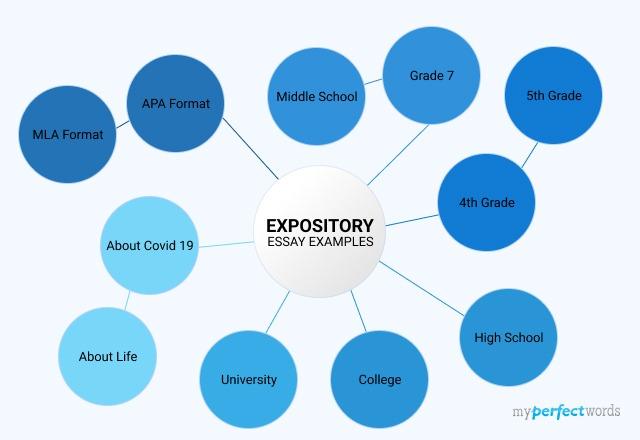
People also read
Complete Guide to Expository Essays: Writing Help and Topics
Interesting Expository Essay Topics For Your Next Paper
How to Write an Expository Essay Outline Like a Pro
Types of Expository Writing - Definition and Examples
Ultimate Guide to Writing an Expository Essay About a Person
Learn to Write an Expository Essay About Yourself
Learn the Basics of Crafting an Expository Essay about a Book
Learn to Write Expository Essay About Mental Health - Examples & Tips
How to Write an Expository Essay about Bullying: A Guide
Expository Essay About Dogs: Steps, Examples & Topics
A Guide to Writing an Expository Essay about Education
Expository Essay About Friendship: A Writing Guide
Discover How to Write Expository Essays About Music – A Step-by-Step Guide
Are you a student struggling to understand the intricacies of expository essay writing?
Do you find yourself in need of clear guidance and practical examples to master this essential skill? Look no further!
In this guide, we'll look into 10+ expository essay examples, providing you with the knowledge you need to start writing. From understanding the fundamentals to dissecting real examples, we've got you covered.
Let's get started on this journey!
- 1. What is Expository Essay Writing?
- 2. Expository Essay Examples
- 3. How to Write an Expository Essay - Example
What is Expository Essay Writing?
An expository essay is a form of academic writing that aims to inform, explain, or describe a particular topic to the reader.
The primary purpose of an expository essay is to provide a clear presentation of facts, ideas, or concepts, often without the writer's personal bias or opinion. The expository essay is a genre of essay that is similar to a descriptive essay .
There are several types of expository writing , including:
- Definition essay
- Classification essay
- Process analysis essay
- Cause and effect essay
- Problem solution essay
- Compare and contrast essay
Newspaper articles, journals, and essays that define and explain a particular topic demonstrate expository essay writing.
Read the examples and learn to write a good expository essay for your school or college assignment.

Paper Due? Why Suffer? That's our Job!
Expository Essay Examples
While writing an expository essay, you might face difficulties in formatting and logically connecting your information. Below we have presented some amazing examples to help you understand how to write and organize an expository essay.
Expository Essay Outline Examples
Whenever you write an expository essay, the first thing you should do is craft an outline. The expository essay outline gives shape to your essay and keeps you organized.
Here are some good expository essay outline examples that you can follow to outline your essay.
Expository Essay Outline Example
Expository Essay Outline Template Sample
Expository Essay Format Example
While writing an essay, you need to follow a proper format to present your information in a logical sequence.
The typical 5 paragraph essay consists of 1 introduction, 3 body, and 1 conclusion paragraph.
Below we have given expository essay format examples in both APA and MLA format to help you understand the formatting. Check out:
Expository Essay Examples APA Format
Expository Essay Examples MLA Format
Short Expository Essay Examples
As we have discussed above, expository essay writing requires you to describe and explain a particular subject in detail. Achieving this level of detail can be quite challenging when working with a limited word count.
To illustrate how to effectively convey information within limited words, we have provided a short expository essay example.
Short Expository Essay Example
Expository Essay Examples for Middle School
Here are some informative expository essay examples for middle school students to help you grasp the basics of expository essay writing.
Expository Essay Example For Middle School
Expository Essay Example Grade 7
Expository Essay Examples 5th Grade
Expository Essay Examples 4th Grade
Expository Essay Examples for High School
Here are some helpful expository essay examples PDFs for high school students. Check out:
Expository Essay Examples For High School
Expository Essay Examples for College
Looking for a college-level expository essay example? Check out the pdf below:
Expository Essay Examples For College
Expository Essay Examples for University
Here are some good sample expository essay pdf examples for university students.
Expository Essay Example About Life
Expository Essay Examples About Covid 19
Informative Expository Essay Example
How to Write an Expository Essay - Example
While writing an expository essay, you need to follow a proper structure. So that you can easily present your information and evidence in a logical sequence.
Here is a step-by-step process of how to write an expository essay:
Step 1. Choose an Appropriate Topic
- Brainstorm different ideas to select a compelling expository essay topic. Check out our expository essay topics blog for inspiring ideas.
- Ensure it has the potential to turn into an informative essay by being able to explain and inform effectively.
Step 2. Craft an Engaging Introduction
- Begin with a captivating hook statement to grab the reader's attention.
- Provide a brief background on the chosen topic to clarify its relevance.
- Formulate an informative thesis statement that encapsulates the core idea of your essay.
Step 3. Develop the Body Paragraphs
- Start each body paragraph with a clear topic sentence , representing the main idea of that particular paragraph.
- Support the topic sentence with credible evidence, facts, or examples that bolster your thesis statement.
- Ensure a smooth transition between paragraphs for a logical flow of ideas.
Step 4. Conclude Effectively
- Start the essay conclusion paragraph by reasserting your thesis statement.
- Summarize the key points and main arguments presented in the essay.
- Encourage the reader with a call to action, prompting them to contemplate or engage further with the topic.
Step 5. Proofread and Edit
- Proofread your essay for grammatical and spelling mistakes and check if the information is presented in a proper sequence.
- Write multiple drafts and edit as needed to ensure your essay is free of errors.
Tough Essay Due? Hire Tough Writers!
In conclusion, these expository essay examples offer a valuable resource for students. They serve as effective learning tools, providing insight into the art of expository writing. By studying these examples, students can improve their writing skills, and gain a deeper understanding of essay structure.
Need assistance with expository essay writing? Finding a website to write my essay ? MyPerfectWords.com is a legitimate essay writing service that provides top-notch essays at reasonable prices. Our expository essay writing service will craft 100% original and non-plagiarized essays within a short deadline.
Stop being worried and place your order now to hire the best essay writers!
Frequently Asked Questions
What are 3 examples of expository.
The three main examples of expository are;
- Scientific reports
- Magazine articles
- Academic essays
What are the 4 characteristics of expository text?
The main characteristics of expository text are;
- Informative
- Clarity
- Unbiased
- Impersonal
- Organization of the text
What is the first important step in writing an expository essay?
To write an expository essay, you must first decide how to structure your work. An expository essay generally contains an introduction, followed by three body paragraphs and a conclusion.

Write Essay Within 60 Seconds!

Caleb S. has been providing writing services for over five years and has a Masters degree from Oxford University. He is an expert in his craft and takes great pride in helping students achieve their academic goals. Caleb is a dedicated professional who always puts his clients first.

Paper Due? Why Suffer? That’s our Job!
Keep reading

Expository Writing: Interactive Activities and Lesson Plan
Kellie Hayden
- Categories : English lesson plans for middle school
- Tags : Teaching middle school grades 6 8

Review How to Write Essay Type
Before beginn
ing the lesson, teachers may need to review expository writing. Some students may not be clear what this type of writing encompasses, which is informing, explaining, clarifying, defining an/or instructing.
Because this type of writing is so versatile, it can be found in magazines, newspapers, newsletters, catalogues, manuals, etc. Students may have written this type of essay in the past and not even known it. For example, student may have written a research paper, report, 5 paragraph essay , definitions, instructions, etc.
A Lesson with Menus
If the Internet is not readily available for students, interactive activities still can happen in the classroom. Giving students a topic and turning them loose with a notepad is not one.
Teachers can be “interactive” through the whole writing process, which means discussion with the whole class and small groups. For example, teachers can create a menu to choose from in the classroom for topics, organizational patterns and graphic organizers.
On the Internet, there are many websites that have ideas, such as PowerPoint presentations on the Lee’s Summit R7 School District website, the PPPST.com website or the Teachers.Scholastic website. The Read Write Think website has an essay map for students to use.
Paper Menu Suggestions
Students should choose one topic to write the essay. Teachers can, of course, add to the list:
- school rules
- current fads
- conflicts with friends
- video games
Example Organizational Patterns
Expository essays can be organized into several organizational patterns. Students need to choose one and stick with it.
- cause and effect
- description
- problem solution
- sequential order
- news article
Example Graphic Organizers
Once students know their organizational pattern, they can choose a graphic organizer to help them brainstorm and organize ideas for their papers.
- Venn Diagram Graphic Organizer & Five Paragraph Essay Graphic Organizer (comparison and contrast essay)
- News Article Graphic Organizer (news writing)
- Word Web Graphic Organizer & Onion Graphic Organizer (descriptive writing)
- Herringbone Graphic Organizer (cause and effect essay)
- T-chart Graphic Organizer (gathering information for a report or research paper)
- Problem & Solution Chart (problem & solution essay)
The websites Education Oasis , Educplace.com and Freeology.com have many great examples of these types of graphic organizers that teachers and students can use.
Steps to Create an Essay
- Before students begin writing, teachers can share how the students will be assessed. One way to assess the writing is by using a rubric. The criteria could be the following: flow, voice, writing conventions, organization, word choice, etc.
- Through large group classroom discussion, students can discuss the topics, organizational structures and graphic organizer.
- After each student selects a topic, organizational structure and graphic organizer, the students will need to fill out the graphic organizer. Students can work with a partner to help develop ideas on the graphic organizer.
- Then, students need to write a draft. Depending on the age of the student, teacher can assign a length. Elementary students may be working on the basic paragraph. For most middle school students, a three to five paragraph essay is great. High school students can be longer.
- After the rough draft is complete, students need to share their work with another person. If the teacher handed out a rubric, the peer should use it to assess the student’s writing strengths and weaknesses.
- Next, students should write their final copy.
The expository activities should help students to write strong essays and to be interactive. How the interaction occurs is up to the teacher.
Resources/references:
Expository Writing and Language, https://writing.pppst.com/expository.html
Information about Expository Essays, https://www.stanford.edu/~arnetha/expowrite/info.html
The Expository Essay, https://library.thinkquest.org/10888/expos.html
Photo credit:

45 Expository Writing Prompts
Expository writing exercises help students practice informing or explaining a topic to their readers, without leaning too much on opinions and instead focusing on facts.
Learning how to write an informative essay is a lifelong skill that will carry readers through their entire education. The earlier they refine these skills, the more successful they will be with the practice as their education progresses.
We’ve put together a list of prompts to help students practice their essay-writing skills, covering various topics and interests.
Using These Prompts
These writing prompts can be used as writing exercises in class, or separately as homework assignments. As long as students practice this skill, they’re already on the right track to succeed.
Here are a few ways you can use this writing guide with your class:
- Challenge students to use one writing prompt in their journal every day for a week.
- Have students choose a number between 1 and 45 and use that number to choose their prompt.
- Use these activities for students who finish their work early and need something to do while they wait for others to finish.
- Use these activities if they fall in line with what students are learning in other classes (such as social studies or history).
Expository Writing Prompts
- Explain why it’s important for students to go to school.
- Write an essay about what qualities make someone a good friend.
- Write an essay about the life and habits of an animal that interests you.
- Describe your favorite place to vacation with your family.
- Describe your favorite holiday and why people celebrate it.
- Why is it important to eat healthy foods?
- Write an essay describing a recent local news event.
- Write an essay that explains the importance of good dental hygiene.
- Is it important to read the book before watching the movie? Explain.
- Write an essay that explains how to play your favorite musical instrument.
- Choose a prominent Black person in history, and write an essay explaining why their accomplishments are important.
- Explain the steps of the scientific method.
- Explain why people who are best friends can sometimes still experience conflict.
- Write an essay describing your favorite board game. Why should others play it?
- Write an essay explaining the process of getting ready for school in the morning.
- Explain what it’s like to have siblings or to be an only child.
- Explain why closed captioning is an important accessibility tool.
- What qualities make someone a good teacher?
- Explain the history of your favorite hobby.
- Explain how to send a text message.
- Why is it important for students to follow the rules at school?
- Write an essay that explains your dream job.
- How does technology shape our daily lives?
- Write about how your family deals with difficult situations.
- What does it mean to be a good person?
- Why is regular exercise an important part of a healthy lifestyle?
- Write an essay that defines feminism. Give examples.
- Explain the importance of recycling.
- What are some ways to stay entertained without using technology?
- Describe a book you recently read and loved. Why did you choose it? What was it about? Why did you love it?
- Describe the life cycle of a butterfly.
- Why is it important that students learn how to do math?
- Talk about your favorite music and why you like it.
- Write an essay about the history of your town.
- Define bravery. Provide examples of what it means to be brave.
- Explain what you would do if you were at a large store and couldn’t find your parents.
- Why is it important for students to learn fire safety at school?
- Explain how to add four-digit numbers.
- Describe the characteristics of your favorite planet.
- Think of your role model. Explain why other people should admire them as well.
- What are the harmful effects of too much screen time?
- Explain why it is important to learn how to read.
- Give three examples of how to get back on task when you get distracted.
- Your class is making a time capsule to be seen in 75 years. Write an essay explaining the one thing you put in that box and why.
- Explain why it is important to help people who are less fortunate than us.
Looking For More?
We have a bunch of great content for teachers, parents, and guardians to help students along with their educational journey.
If you are looking for something specific and can’t find it on our site, reach out and let us know. We’re here to help you help your students succeed!
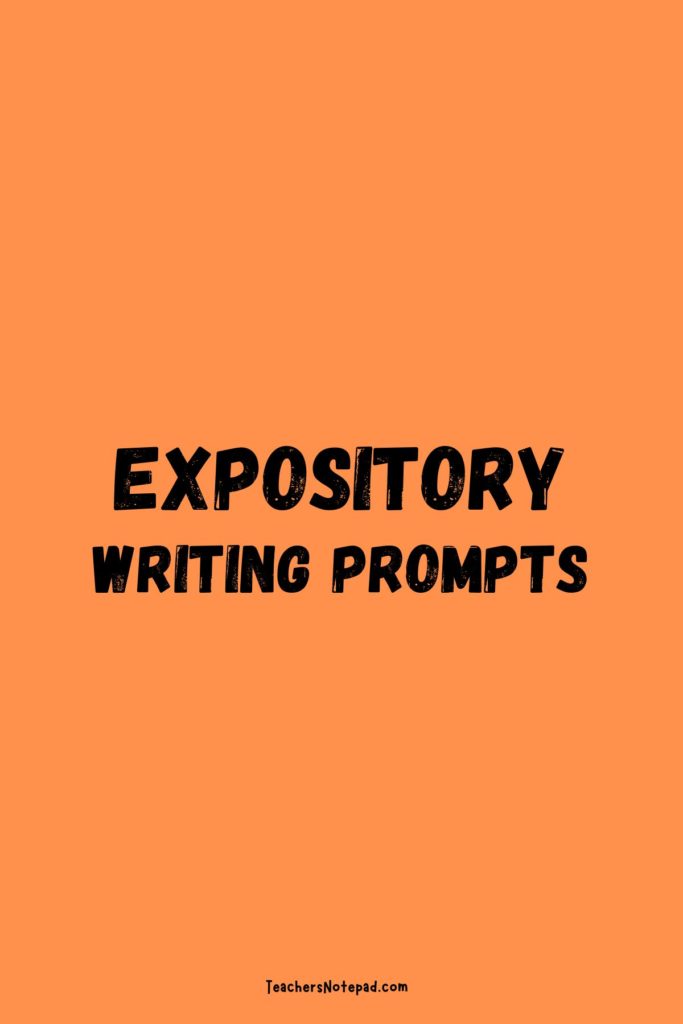
Jump to navigation
- Inside Writing
- Teacher's Guides
Student Models
- Writing Topics
- Minilessons
- Shopping Cart
- Inside Grammar
- Grammar Adventures
- CCSS Correlations
- Infographics
Student Writing Models
How do I use student models in my classroom?

When you need an example written by a student, check out our vast collection of free student models. Scroll through the list, or search for a mode of writing such as “explanatory” or “persuasive.”
Jump to . . .
Explanatory writing.
- How Much I Know About Space Explanatory Paragraph
- My Favorite Pet Explanatory Paragraph
- Sweet Spring Explanatory Paragraph
Narrative Writing
- A Happy Day Narrative Paragraph
- My Trip to Mexico Narrative Paragraph
Creative Writing
- Happy Easter Story Paragraph
- Leaf Person Story
Research Writing
- Parrots Report
- If I Were President Explanatory Paragraph
- My Dad Personal Narrative
- The Horrible Day Personal Narrative
Response to Literature
- One Great Book Book Review
- A Fable Story
- Ant Poem Poem
- The Missing Coin Story
- Winter Words Poem
- Horses Report
- Ladybugs Report
- How to Make Boiled Eggs How-To
Persuasive Writing
- Plastic, Paper, or Cloth? Persuasive Paragraph
- The Funny Dance Personal Narrative
- The Sled Run Personal Narrative
- Hello, Spring! Poem
- Cheetahs Report
Business Writing
- Dear Ms. Nathan Email
- My Favorite Place to Go Description
- My Mother Personal Essay
- Rules Personal Essay
- Shadow Fort Description
- Adopting a Pet from the Pound Editorial
- Letter to the Editor Letter to the Editor
- Ann Personal Narrative
- Grandpa, Chaz, and Me Personal Narrative
- Indy’s Life Story Personal Narrative
- Jet Bikes Personal Narrative
- The Day I Took the Spotlight Personal Narrative
- A Story of Survival Book Review
- Chloe’s Day Story
- Did You Ever Look At . . . Poem
- Dreams Poem
- I Am Attean Poem
- Sloppy Joes Poem
- The Civil War Poem
- The Haunted House Story
- The Terror of Kansas Story
- When I Was Upside Down Poem
- Deer Don’t Need to Flee to Stay Trouble-Free! Report
- Height-Challenged German Shepherd Report
- Friendship Definition
- What Really Matters News Feature
- Cheating in America Problem-Solution
- Hang Up and Drive Editorial
- Musical Arts Editorial
- Summer: 15 Days or 2 1/2 Months? Editorial
- A Cowboy's Journal Fictionalized Journal Entry
- Giving Life Personal Narrative
- The Great Paw Paw Personal Narrative
- The Racist Warehouse Personal Narrative
- Limadastrin Poem
- The Best Little Girl in the World Book Review
- How the Stars Came to Be Story
- Linden’s Library Story
- My Backyard Poem
- The Call Poem
- I Am Latvia Research Report
- Mir Pushed the Frontier of Space Research Report
- The Aloha State Research Report
- The Incredible Egg Observation Report
- Unique Wolves Research Report
- Dear Dr. Larson Email
Personal Writing
- A Lesson to Learn Journal
- Caught in the Net Definition
- From Bed Bound to Breaking Boards News Feature
- If Only They Knew Comparison-Contrast
- Save the Elephants Cause-Effect
- Student Entrepreneur Reaches for Dreams of the Sky News Feature
- Internet Plagiarism Problem-Solution
- Mosquito Madness Pet Peeve
- Anticipating the Dream Personal Narrative
- Huddling Together Personal Narrative
- H’s Hickory Chips Personal Narrative
- It’s a Boy! Personal Narrative
- My Greatest Instrument Personal Narrative
- Snapshots Personal Narrative
- Take Me to Casablanca Personal Narrative
- The Boy with Chris Pine Blue Eyes Personal Narrative
- The Climb Personal Narrative
- The House on Medford Avenue Personal Narrative
- Adam’s Train of Ghosts Music Review
- Diary of Gaspard Fictionalized Journal Entry
- My Interpretation of The Joy Luck Club Literary Analysis
- Mama’s Stitches Poem
- The KHS Press Play
- Rosa Parks Research Report
- The Killer Bean Research Report
- Mid-Project Report on History Paper Email
- Vegetarian Lunch Options at Bay High Email

120 Engaging Middle School Writing Prompts
Getting middle school students to write can be particularly challenging. However, if you provide your students with a fun, interesting, and engaging writing prompt, you’ll find that their creativity and enthusiasm for writing can be easily sparked.
Below is a list of writing prompts for middle school students, including creative prompts, journal prompts, persuasive writing prompts, expository writing prompts, and story starter prompts. These are perfect for classroom exercises, homework assignments, or even just for personal exploration, helping students to develop their writing skills, express their ideas, and discover the joy of writing.
Creative Writing Prompts for Middle School Students

These creative writing prompts are cues or scenarios that inspire imaginative storytelling and personal expression. These prompts will encourage middle school students to explore new ideas, develop their narrative skills, and express themselves in unique and creative ways. Here’s a list of creative writing prompts for middle school students:
- Write a story where the main character discovers a secret passage in their home.
- Imagine a world where animals can talk. What would they say?
- Create a tale about a mysterious, abandoned city you stumbled upon.
- Write about a day where everything you draw becomes real.
- Imagine finding a book that contains your entire life story. What do you do?
- Write a story set in a futuristic world where everyone lives underwater.
- Create a tale about a magical garden that grants wishes.
- Describe a journey to a planet entirely different from Earth.
- Write about a character who can switch lives with anyone they meet.
- Imagine your school is a castle. What adventures unfold there?
- Write a story about a secret society of kids with superpowers.
- Describe a world where it’s night for half the year.
- Create a story about a mysterious forest that changes with the seasons.
- Write about discovering an old map that leads to a hidden treasure.
- Imagine waking up in a world where you are the ruler.
- Create a tale about a magical snow globe that transports you to different places.
- Write about a character who invents a new holiday.
- Describe a world where shadows have a life of their own.
- Imagine finding a door in your backyard that leads to a different universe.
- Write a story about a character who can hear others’ thoughts.
Journal Writing Prompts for Middle School Students

These journal writing prompts are thought-provoking questions or ideas that will encourage middle school students to reflect on their personal experiences, feelings, and beliefs. These prompts are designed to help students develop self-awareness, enhance their writing skills, and express themselves in a safe, private space. Here’s a list of journal writing prompts for middle school students:
- Write about your most memorable day and why it stands out.
- Describe your dream job and why you’re interested in it.
- Reflect on a time when you overcame a challenge.
- Write about what kindness means to you and a time you experienced it.
- Imagine your perfect day. What would it involve?
- Describe your favorite hobby and why you enjoy it.
- Write about the best advice you ever received and who gave it to you.
- Reflect on your greatest strength and how it has helped you.
- Write about a goal you have for this school year.
- Describe a place where you feel completely relaxed and happy.
- Reflect on a book or movie that deeply impacted you.
- Write about someone you admire and why.
- Describe a time when you helped someone and how it made you feel.
- Imagine what the world will be like in 50 years.
- Write about your favorite memory with your family.
- Reflect on a moment when you felt proud of yourself.
- Describe your ideal adventure.
- Write about a time you were scared and how you handled it.
- Reflect on what friendship means to you.
- Write about a skill you’d like to learn and why.
Persuasive Writing Prompts for Middle School Students

These persuasive writing prompts are designed to inspire middle school students to develop arguments and persuade readers about a particular viewpoint or idea. These prompts will encourage critical thinking and research skills and enable students to present and justify their opinions clearly. Here’s a list of persuasive writing prompts for middle school students:
- Should homework be banned in schools? Argue your point.
- Persuade your readers why recycling should be mandatory.
- Is it better to read a book or watch a movie adaptation? Make your case.
- Argue for or against the importance of physical education in schools.
- Should students have a say in what they learn? Persuade your audience.
- Persuade your readers about the importance of learning a second language.
- Is it more beneficial to be a team player or an individual performer? Justify your opinion.
- Should animals be kept in zoos? Present your arguments.
- Argue why your favorite season is the best.
- Persuade your audience about the importance of arts in education.
- Should there be stricter rules for students’ internet use? Make your case.
- Argue for or against school uniforms.
- Is it better to give money to charity or volunteer your time? Persuade your readers.
- Persuade your audience on the importance of eating healthy foods.
- Should video games be considered a sport? Argue your viewpoint.
- Is it more important to be smart or kind? Persuade your readers.
- Argue why your city or town is a great place to live.
- Should students be allowed to use mobile phones in school? Present your arguments.
- Persuade your audience on the importance of having a hobby.
- Argue for or against the significance of space exploration.
Expository Writing Prompts for Middle School Students
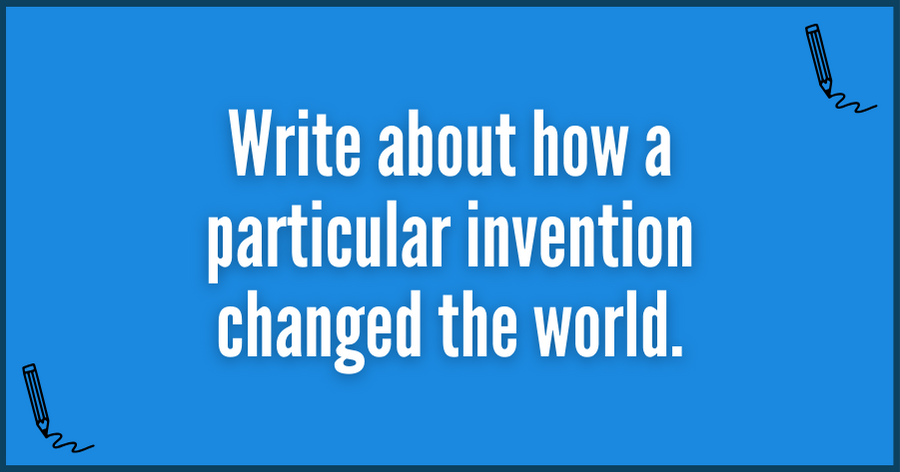
These expository writing prompts are designed to help middle school students explore and convey information in a clear, concise, and structured manner. This type of writing requires students to investigate an idea, evaluate evidence, expound on the idea, and set forth an argument concerning that idea in a coherent way. Here’s a list of expository writing prompts for middle school students:
- Explain the significance and process of the water cycle in nature.
- Describe the causes and effects of climate change.
- Write about the history and significance of a famous holiday.
- Explain how a specific technology works (like smartphones or virtual reality).
- Describe the steps involved in making your favorite meal.
- Write about the life cycle of a butterfly or another animal.
- Explain the importance of a balanced diet and exercise.
- Describe what life was like in a particular historical period.
- Explain how governments are formed and function.
- Write about the journey of water through the water cycle.
- Describe how a bill becomes a law.
- Explain the impact of social media on modern communication.
- Write about the process of photosynthesis.
- Describe the different types of renewable energy and their importance.
- Explain the significance of recycling and its impact on the environment.
- Describe how the human body’s immune system works.
- Explain the causes and effects of a significant historical event.
- Write about how a particular invention changed the world.
- Describe the process of creating a movie or a television show.
- Explain the importance and process of goal setting and planning for the future.
Narrative Writing Prompts for Middle School Students
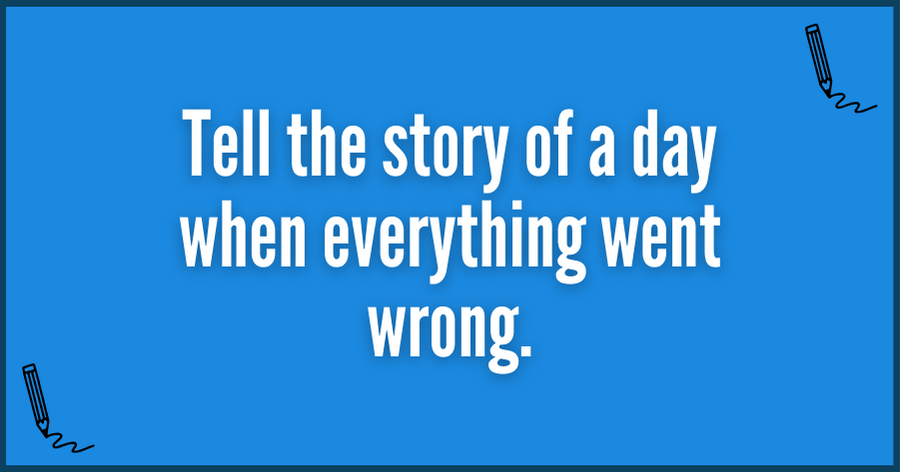
These narrative writing prompts encourage middle school students to tell a story, either about themselves, someone else, or a completely fictional scenario. This type of writing helps students develop their storytelling skills, enhances their creativity, and allows them to express their thoughts and experiences in an engaging way. Here’s a list of narrative writing prompts for middle school students:
- Write about a time you faced a difficult decision and how you resolved it.
- Imagine you can time travel; describe your first adventure.
- Tell the story of a day when everything went wrong.
- Write about your most cherished memory with a friend or family member.
- Imagine you woke up one day and could speak another language fluently. What would happen?
- Describe a moment when you tried something outside of your comfort zone.
- Tell a story about a mysterious object you found and its origins.
- Write about a time you helped someone and how it made you feel.
- Imagine a day in the life of your pet. What adventures do they have?
- Describe your dream vacation and what would make it special.
- Write a story about meeting a famous person in an unexpected place.
- Tell the tale of a historical event from the perspective of someone who lived through it.
- Imagine a world where children are in charge. What would it be like?
- Write about the day you had a surprising encounter with wildlife.
- Describe a time when you overcame a significant challenge.
- Tell a story about a journey to a magical place.
- Write about the day you made an unlikely friend.
- Imagine discovering a secret room in your house. What’s inside?
- Describe a time when you achieved something you didn’t think was possible.
- Write about a day in the future, 50 years from now. What has changed? What has stayed the same?
Story Starters for Middle School Students

These story starters are engaging, imaginative prompts that provide the opening sentence or scene of a story. These starters will ignite the imagination, encouraging students to explore various genres, characters, and plots. They’re an excellent tool for overcoming writer’s block and for practicing narrative development, character creation, and setting establishment. Here’s a list of story starters for middle school students:
- “As the mysterious music played, the ancient book on the table suddenly flew open.”
- “Lost in the forest, I stumbled upon a hidden cottage made entirely of candy.”
- “The moment I put on the strange glasses, I could see into the future.”
- “Under my bed, I found a map leading to a secret underground city.”
- “When I woke up, I realized I had switched places with my pet.”
- “The old clock in the town square struck thirteen times, and then everything changed.”
- “I discovered a hidden door in the school library that led to a different world.”
- “On my way to school, I found a mysterious golden key with my name on it.”
- “During the night, all of my dreams escaped from my mind and became reality.”
- “The mirror in my room showed a reflection of a place I had never seen before.”
- “As I read the last page of the diary, the ghostly writer appeared in front of me.”
- “The new kid at school could do something no one else could – talk to animals.”
- “In the attic, I found a dusty old board game that turned out to be real.”
- “The picture in the museum started to move and reached out to me.”
- “I got a mysterious package in the mail with no return address. Inside was a magical object.”
- “During a thunderstorm, our house was suddenly transported to a different world.”
- “I found a strange old coin on the ground that had the power to grant wishes, but each wish came with a price.”
- “While exploring the beach, I stumbled upon a message in a bottle from a stranded pirate.”
- “In the garden, I discovered a plant that grew overnight and whispered secrets.”
- “When I looked through the telescope, I saw not stars, but the eyes of something watching.”
You May Also Like
Middle School Icebreakers Flashcard Games For Middle School Students Reading Games For Middle School Students Middle School Debate Topics Classroom Games For Middle School Students

VIDEO
COMMENTS
Get past the thesis statement with two examples of expository essays. Learn more about the format, requirements, and types of expository writing for middle and high school.
Below are several sources of expository writing samples for middle school students. The Write Source Expository Writing Samples. Holt, Rinehart, Winston Expository Essay Models. Finally, here is an article in the New York Times that will help you teach your students real-world expository writing skills.
The ability to provide information in different contexts is essential to effective communication. Students must practice expository writing throughout their academic careers. The sooner they start, the better. Below are some descriptive, sequential, compare and contrast, cause and effect, and problem/solution writing prompts to help you give your students the…
Expository Essays explain a particular topic in a detailed, logical and straightforward manner. These types of essays are completely informative. They do not include any references or any opinion of the writer. The tone of an expository essay is kept neutral. Hence, while writing an expository essay you will be expected to illustrate, define, explain or clarify the topic in
Expository Writing follows a structured format with an introduction, body paragraphs presenting information and examples, and a conclusion summarising key points and reinforcing the thesis. Common expository essays include process, comparison/contrast, cause and effect, and informative essays. Table of contents.
The structure of your expository essay will vary according to the scope of your assignment and the demands of your topic. It's worthwhile to plan out your structure before you start, using an essay outline. A common structure for a short expository essay consists of five paragraphs: An introduction, three body paragraphs, and a conclusion.
Expository writing, as its name implies, is writing that exposes facts. In other words, it's writing that explains and educates its readers, rather than entertaining or attempting to persuade them. When you read a scholarly article, a textbook page, a news report, or an instructional guide, you're reading expository writing. Strike the ...
An expository essay is an essay that communicates factual information. Broadly, this type of writing is known as expository writing. Expository essays rely on different structures to communicate their positions, like compare and contrast, process essays, and analyzing cause and effect. Expository writing is one of the four main types of writing ...
Math Essay. Middle schoolers are sometimes asked to write expository essays in math classes. They solve an equation, explaining in a process essay how they reach their solution. An example prompt is, "If 1 percent of your bill for lunch is 18 cents, and you want to leave a 15 percent tip, how much money should you leave?
This is how I've laid out my entire 9-week Expository Reading & Writing Unit for 7th grade English / Language Arts. Inside my private membership area, you can actually click on each week and then all the lesson plans for that week open up. Each file is kinda large (never larger than 20MB) and so they'll download in the form of a ZIP file (a ...
Expository writing is a type of writing that is used to explain, describe, and give information and uses evidence, details, and facts to support the topic. An example of expository writing is ...
Expository/Informative writing focuses on facts that inform you. Facts can be checked in books or online. For example: 1. The Mayan people created intricate cities of stone that still stand today. 2. A group of jellyfish is called a "bloom" and can include more than 10,000 individuals. These two sentences would likely be found in expository ...
It is used to evaluate the analytical skills of students in both middle school and high school. Writing an expository essay often requires one to thoroughly research the topic, and use primary and secondary sources. Such writings are designed to explain facts, ideas, and concepts in an objective and informative manner.
Unique Expository Essay Writing Prompts For Middle School. In middle school, students are often introduced to different types of writing, including expository essays. These essays require students to explore a topic, provide evidence and examples, and explain their ideas in a clear and coherent manner.
Provide a brief background on the chosen topic to clarify its relevance. Formulate an informative thesis statement that encapsulates the core idea of your essay. Step 3. Develop the Body Paragraphs. Start each body paragraph with a clear topic sentence, representing the main idea of that particular paragraph.
After the rough draft is complete, students need to share their work with another person. If the teacher handed out a rubric, the peer should use it to assess the student's writing strengths and weaknesses. Next, students should write their final copy. The expository activities should help students to write strong essays and to be interactive.
Components of an Expository Essay. First of all, let's talk about the components of an expository essay. The introduction should grab the reader's attention, provide background information on the topic, and include a clear thesis statement.. The body paragraphs should provide specific details, evidence, and examples to support the thesis statement.. The conclusion should summarize the main ...
The goal of expository writing is to deepen the reader's understanding of the topic. Expository writing is fact-based and presented in a logically organized way. The writer is objective, meaning they keep their opinion out of the writing. Expository writing is also called: informational writing. informative writing.
45 Expository Writing Prompts. Expository writing exercises help students practice informing or explaining a topic to their readers, without leaning too much on opinions and instead focusing on facts. Learning how to write an informative essay is a lifelong skill that will carry readers through their entire education.
These topics require a bit more research and test the writer's expository writing skills. They are best used for high school students, although secondary students in advanced writing classes can also benefit from them. 1. There is a strong parent-led campaign in your city to curb down on homework assignments given to students.
Student Models. When you need an example written by a student, check out our vast collection of free student models. Scroll through the list, or search for a mode of writing such as "explanatory" or "persuasive.".
This form of writing is a method of writing in which the author describes, informs, or explains a topic to the reader. Learning how to write an expository paper (or essay) is one of the most important skills that students can develop from an early age. Of course, it is also a skill one may develop or refine at any age or stage in school or life.
Expository Writing Prompts for Middle School Students. These expository writing prompts are designed to help middle school students explore and convey information in a clear, concise, and structured manner. This type of writing requires students to investigate an idea, evaluate evidence, expound on the idea, and set forth an argument concerning ...